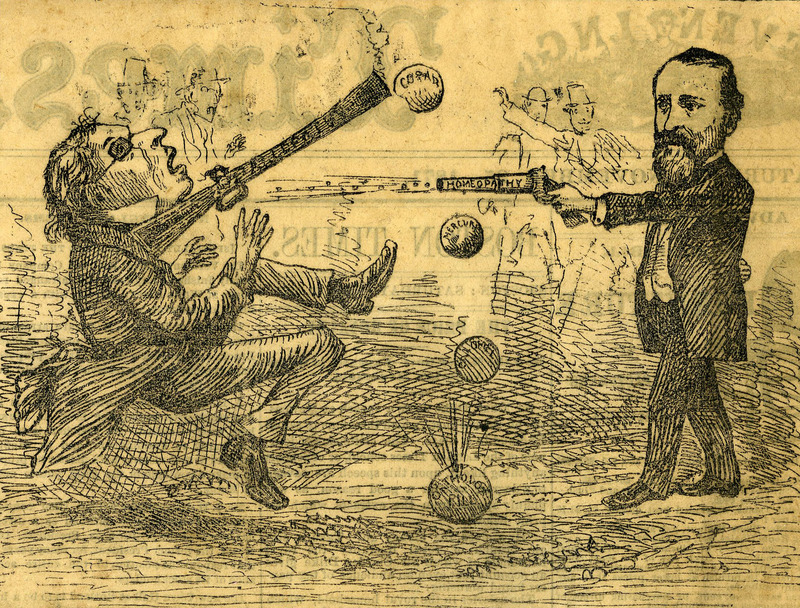American Medical Association and the Massachusetts Medical Society
The conflict between the homeopaths and the so-called allopaths or regular physicians also played out on the national stage. Soon after its formation, the American Medical Association adopted a code of ethics including the "consultation clause," forbidding members to consult on medical cases initiated by homeopathic practitioners and stating that "no one can be considered as a regular practitioner, or a fit associate in consultation, whose practice is based upon an exclusive dogma."In 1855, the American Medical Association required all the state societies to adopt the code of ethics. The constituents then proceeded to purge their homeopathic members over the next few years, with only the Massachusetts Medical Society failing to do so. No new homeopathic members were admitted, but there were no expulsions from the Medical Society until after the AMA meeting in 1870, at which point the Society was threatened with removal from the Association if it did not rid itself of homeopathic practitioners. The Society first resolved to do so and then reversed the decision, as there was some legal uncertainty regarding the ability to expel.
In November 1871, eight of the Society's homeopathic members— Drs. Samuel Gregg, William Bushnell, George Russell, I. T. Talbot, Milton Fuller, David Thayer, H. L. H. Hoffendahl, and Benjamin H. West—most of them members since the 1840s—were summoned to trial by Samuel Augustus Fisk, president of the Massachusetts Medical Society, for expulsion "by practicing or professing to practice according to an exclusive theory or dogma, and by belonging to a Society whose purpose is at variance with the principles of, and tends to disorganize, the Massachusetts Medical Society." The move was blocked by the Deputy Sheriff of Suffolk County, who brought an injunction to stop the expulsions and the trial was postponed. In February 1873, the State Supreme Court ruled that the Society did not have the power to expel. Oliver Wendell Holmes advised that the matter be dropped, but the trial resumed in April, and the defendants were charged with practicing homeopathy and being members of the homeopathic medical society. The Massachusetts Medical Society's Board of Trial resolved on May 19, 1873, to expel the surviving defendants—Samuel Gregg had since died—and, over the next few years, the Society proceeded to purge other members, for either being homeopaths or consulting on cases with them.

